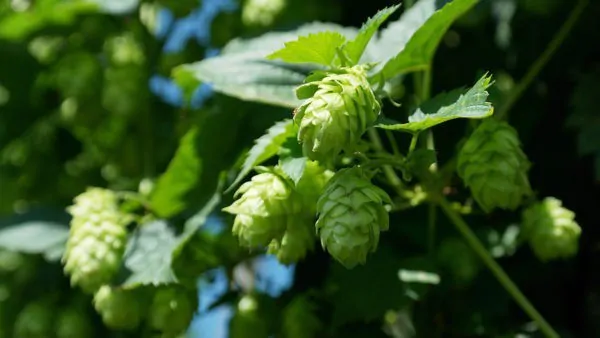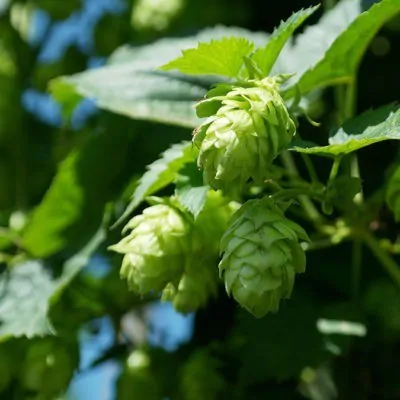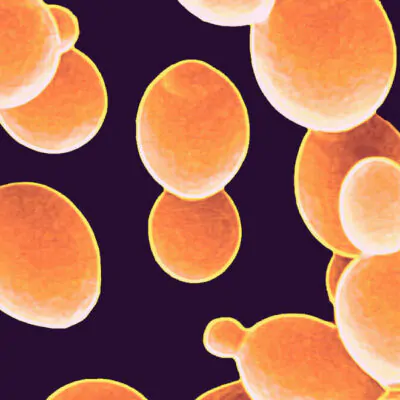Hops

In most people’s subconscious minds, the word Beer is almost always associated with the word hops. What is it and what is its role in the preparation of this heavenly beverage?
Hops (Humulus lupulus) are a climbing plant belonging to the cannabis family. Its shoots can climb to a height of several meters The plant is dioecious, with male and female flowers on separate plants. The fragrant flowers are wind-pollinated. The staminate (male) flowers do not have petals, while the pistillate (female) flowers have petals enveloping the fruit. The female flower cones (or strobili) are known as hops. In brewing, only the unpollinated female flowers – soft, fluffy cones – are used. It is in them that the substances necessary for beer are concentrated to the greatest extent.
It is impossible to determine the origin of hops, but it is known that they were used by various peoples in ancient times, long before they were used in brewing. It was used as a medicinal plant. It has long been noted that hops are an excellent natural antiseptic and preservative. But at the same time, in some countries, such as England, hops were considered a poisonous plant and were completely banned. This greatly delayed the widespread use of hops in brewing. Before that, rosemary, coriander, juniper, caraway, nutmeg, chamomile flowers, oak leaves and bark, etc. were added to beer for flavor, aroma and bitterness, but gradually, around the 12th century, hops replaced all these additives.
The hops are harvested at the end of August. The freshly plucked cones are dried in an oven and then the acid contained in the hops is extracted. Hops are used for brewing in various forms: pellets as well as extracts. Some breweries use freshly harvested hop cones, but this is not economically viable and the varying amounts of acids contained in the cones make it impossible to calculate recipes accurately and obtain the desired results.
From the type of hops used, the flavor and aroma of the beer depends very much. Often several hop varieties are added during brewing, each of them giving the beer something different: aroma or hop bitterness. As mentioned, in addition to its effect on flavor and aroma, hops act as a natural preservative in beer. Talking about the various preservatives added to beer: a brewery where all stages of the technological process from brewing to bottling are at an appropriate level, where cleanliness and hygiene are really taken care of, does not need any preservatives. The hops do the job perfectly.
During brewing, the acids in the hops are isomerized, and it is these acids that give beer its bitterness. Aromatic oils dissolved in the wort give beer different, sometimes very unusual aromas. Thus, it is possible to obtain a beer with a bright citrus or sweet fruit flavor without adding fruit.
Originally, the main hop varieties had similar aromas of grass, pine, and wildflowers. Only in the last half century have breeders managed to develop varieties with the aroma of exotic tropical fruits, citrus fruits, etc. This is what gave an impetus to craft brewing and the creation of new unusual beers – beer lovers realized that in addition to classic beers, there are other beers that are unusual for many people.















